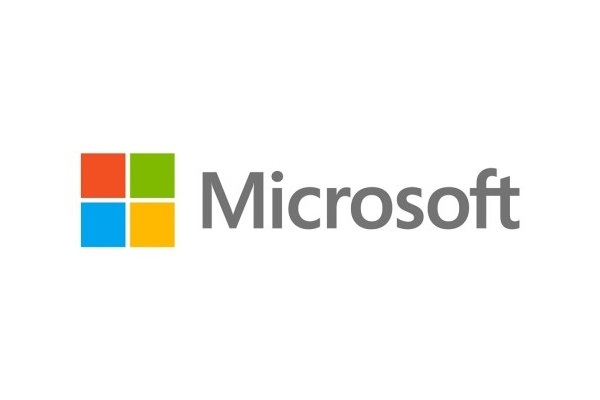Microsoft has added nine new learn modules to its Tech Resilience Curriculum to foster a more inclusive and diverse workplace in the Information Technology ecosystem.
Available for free on Microsoft Learn, these modules help everyone, from student to employee, mentor or manager to hone important non-tech skills and foster a more inclusive and diverse workplace in the Information Technology ecosystem.
This curriculum was developed in partnership with Mount Holyoke’s Metaview Mentors to build a research-based toolkit involving core psychological, educational, and team-based concepts and skills as part of a different kind of “learning pathway” for the tech industry. Microsoft launched this curriculum in 2020 as a pilot and was able to connect with over 1,200 students across 190 universities, 97% of whom declared this had a profound impact teaching them skills they can apply in school and their lives.
The program was also piloted at Microsoft and evolved on learnings from employees in the IT industry, helping make it relevant at scale. Employees found the materials helpful in their own learning and development, especially in a group-learning contexts like a mentoring ring which helps to develop a common language and creates an environment to share strategies. Revisiting these concepts prepared employees to maximize their impact at many different levels.
The approach for the tech resilience curriculum outlines clear and simple skills to making belongingness, growth mindset and other core problem-solving and collaboration strategies top of mind and actionable. The toolkit of the curriculum consists of videos, activities and reflection questions. These skills can be used to challenge our conceptions of what’s taught in computer science, learn new and critical skills for the workplace, and build flourishing and healthy communities. The tech resilience curriculum modules are organized across three principles:
Recognize discomfort: In tech, we are lifelong learnings and are always going to be pushed to learn something new. Programming requires learning; it’s not an innate skill. Struggle, challenge and discomfort can be part of learning computer science. Great programmers are made through practice and experience.
Strategize solutions: Strategic problem-solving abilities to plan, iteratively test, evaluate and refine work are necessary for group or individual projects. How we approach something can be as important as the final solution, technical skills aren’t enough. Making space to recognize and strategize around the role emotions play is essential for succeeding in computer science and at work.
Pivot & Persist: Learning how to react to and recover from unexpected disruptions or setbacks is an important ability to hone. Understanding and naming what is happening, disentangling what we do and do not have control over, and regrouping with new strategies helps improve persistence and the ability to bounce back or pivot, rather than panic, in the face of difficulty. We can learn to pivot a difficult situation into a productive one.
Has COVID-19 forever changed the way we live and work?
Trending
-
SBI General Insurance Launches Digital Health Campaign
-
CredR Rolls Out 'Life Happens' Leave For Its Employees
-
Meesho Announces 30-Week Gender-Neutral Parental Leave Policy
-
Microsoft Unveils Tech Resilience Curriculum To Foster An Inclusive Future
-
60% Indian Professionals Looking For Job Change Due To COVID: Survey
-
SpringPeople And Siemens Collaborate For Digital Transformation Push
-
86% Professionals Believe Hybrid Work Is Essential For Work Life Balance: Report
-
Almost 1 In Every 3 People's Personal Life Affected Due To Work Stress
-
Meesho Rolls Out Reset And Recharge Policy For Employees
-
80% Of Talent Leaders & Academics Say Pandemic Changed Skill Needs For Youth: Report
-
Hero Electric Rolls Out 'Hero Care' Program For Employees
-
Human Capital In Collaboration With ASSOCHAM Hosts Virtual Conference
-
IKEA India, Tata STRIVE Collaborate To Create Employability And Entrepreneurship Opportunities
-
SAP India, Microsoft Launch Tech Skilling Program for Young Women
-
DXC Technology, NASSCOM Collaborate For Employability Skills Program
-
Lenskart To Hire Over 2000 Employees Across India By 2022
-
Mindtree Launches Learn-and-Earn Program
-
Tata AIA Extends 'Raksha Ka Teeka' To Its Employees
-
Swadesh Behera Is The New CPO Of Titan
-
NetConnect Global Plans To Recruit 5000 Tech Professionals In India
-
Hubhopper Plans To Hire 60% Of Indian Podcasters By 2022
-
Corporate India Needs More Women In Leadership Roles: Report
-
Aon to Invest $30 Million and Create 10,000 Apprenticeships by 2030
-
Tech Mahindra Launches ‘Gift a Career’ Initiative for Upskilling of Youth
-
40% Women Prefer Flexible Working Options in Post-COVID World: Survey
-
3 out of 4 companies believe they can effectively hire employees virtually: Report
-
Vodafone , CGI and NASSCOM Foundation launch digital skills platform
-
Odisha: Bank, postal employees to deliver cash for elderly, differently-abled persons
-
Skill India launches AI-based digital platform for "Skilled Workforce"
-
Hiring activity declines 6.73% in first quarter: Survey
-
70% startups impacted by COVID-19 pandemic
-
Bajaj Allianz Life ropes in Santanu Banerjee as CHRO
-
Over 70 Percent MSMEs look at cutting jobs to sustain businesses
-
93 Per Cent employees stressed about returning to office post-lockdown
-
Johnson & Johnson India announces family benefits for same gender partners
-
Indian firms turning friendly towards working mothers
-
Welspun India names Rajendra Mehta as new CHRO
-
Wipro partners with NASSCOM to launch Future Skills platform



Human Capital is niche media organisation for HR and Corporate. Our aim is to create an outstanding user experience for all our clients, readers, employers and employees through inspiring, industry-leading content pieces in the form of case studies, analysis, expert reports, authored articles and blogs. We cover topics such as talent acquisition, learning and development, diversity and inclusion, leadership, compensation, recruitment and many more.
Subscribe Now











































Comment